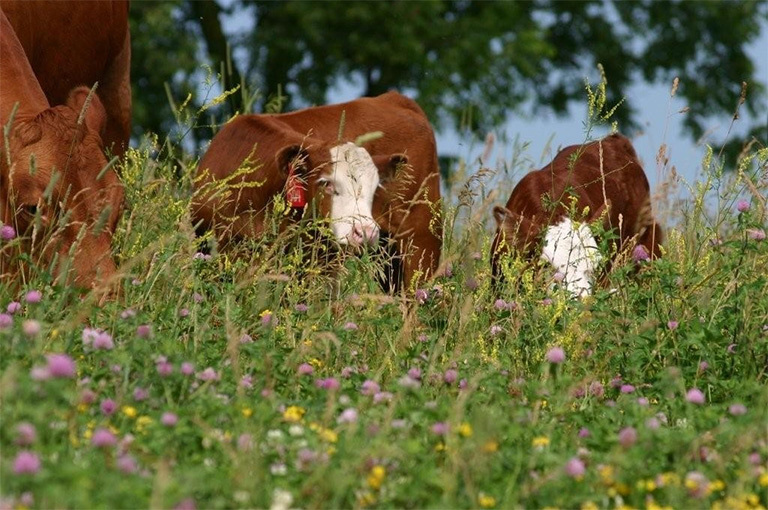Governments urged to end live exports now
Published 3/26/2024

We’ve written to Ministers in both Australia and Brazil urging them to end the cruel and unnecessary trade in live animal exports without delay.
The letters follow several high-profile cases where the suffering of live animals being exported on long sea journeys was met with global public outrage. They urge both the Brazilian and Australian Governments to end these unnecessary journeys within a clear deadline.
Animals imprisoned on Australia’s MV Bahijah for over a month
In February, the suffering experienced by 16,000 animals being transported by sea from Australia to the Middle East became the focus of worldwide media attention. 15,000 sheep and 1,750 cattle spent over a month on board the MV Bahijah ship when it abandoned its journey to Israel due to the current conflict in the Middle East.
The animals were returned to Western Australia where they spent many days onboard in temperatures of up to 40°C before being unloaded. Despite public outrage, the Australian Government approved the re-export of these animals. They are now on their way back to Israel – this time on an even longer journey of over 30 days around Africa.
Another shocking case was revealed on 26 March, when news reports announced that the federal government in Australia is launching an investigation into the deaths of over 100 cattle on ‘The Brahman Express’ on its journey from Darwin to Indonesia.
In March 2023, the Australian government announced plans to phase out the live export of sheep by sea. However, no timescale for the phase out has been provided. Our Global CEO, Philip Lymbery has written to the Minister for Agriculture, Fisheries and Forestry, Senator Murray Watt, asking that he uses the MV Bahijah’s arrival in Israel this month as an opportunity to provide a clear timescale for his Government’s legislation. The letter was copied to Prime Minister Anthony Albanese.
Brazil’s export ship causes overwhelming stench in Cape Town
In February, the Al Kuwait livestock carrier with nearly 20,000 cattle on board stopped in Cape Town in South Africa en route from Brazil to the Middle East. People in Cape Town were first alerted to the plight of the animals on the ship by the stench that engulfed the city. Images taken by the NSPCA officials who boarded the ship confirmed fears of the suffering endured, with animals forced to lie in their own excrement and urine, and many diseased and injured. The ship is now completing its onward journey to Iraq.
Our Chief Policy Advisor, Peter Stevenson, has written to Carlos Favaro, Minister of Agriculture urging him to halt the export of live cattle from Brazil to the Middle East. On 25 April 2023 the 25th Federal Civil Court of São Paulo ordered that no live animals should be exported from Brazil’s ports, with the judge basing his ruling on three separate elements: the poor welfare animals would endure en route, that slaughter practices in the Middle East would be illegal in Brazil, and crucially, that animals ‘are sentient beings’. However, despite this historic ruling, the trade has continued.
Cruel live exports trade has no place in the 21st century
Worldwide, millions of farmed animals are forced to endure journeys of hundreds, or even thousands, of miles, every year only to be slaughtered on arrival or fattened in often inhumane conditions.
Our recent report, A Data Dump of Suffering, examined previously unpublished records from the EU, revealing the suffering endured by around 44 million farmed animals on horrific journeys lasting up to three weeks. While at sea, the animals are at risk of heat stress, exhaustion, hunger, pain and sickness.
In Great Britain, the Animal Welfare (Livestock Exports) Bill to ban the export of live farmed animals for slaughter or fattening is currently going through the House of Lords and is expected to become law imminently. In April 2023, New Zealand introduced a ban on live animal exports. However, an election in 2023 brought in a new coalition government, which is vowing to reintroduce the trade.
Philip comments: “While extremely distressing, the recent stories making international headlines have helped raise awareness of the cruelty of this barbaric trade. Animals are not cargo but sentient beings who should not be subjected to the horrors of long-distance journeys.
“A Federal Civil court in Brazil has ruled that live animals should not be exported from Brazilian ports and the Australian government is committed to ending live sheep exports, but we are yet to see any confirmation of timings. We hope that by writing directly to those in a position of authority that they will accelerate the process and confirm a clear deadline for this horrific trade to end, for good.”
Contact the Prime Minister of Australia to ask for confirmation of a date to phase out live exports of sheep by sea.
Sign the petition to the World Organisation for Animal Health to bring an end to live transport of animals for slaughter.
